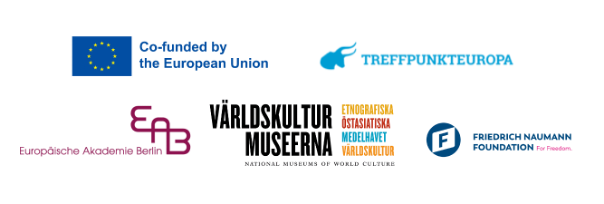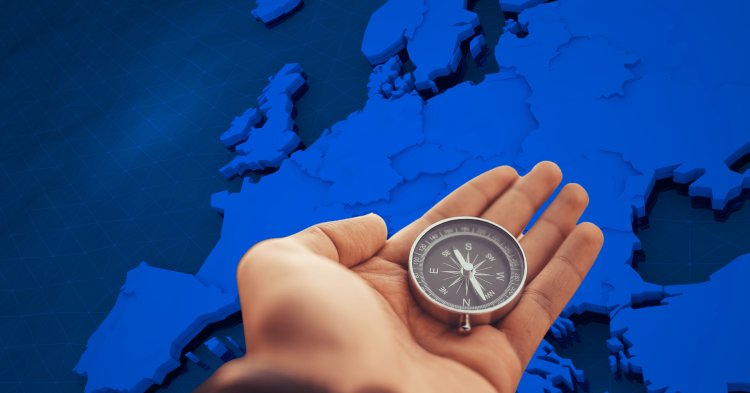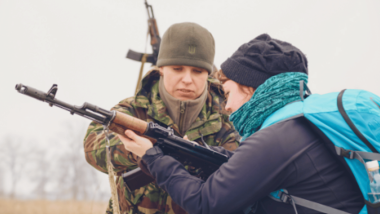For this reason, the EU has launched the “STRATEGIC COMPASS FOR SECURITY AND DEFENCE”, which includes the creation of an “EU Rapid Deployment Capacity”. This consists of 5,000 soldiers who can be deployed in crisis situations: Is this Rapid Deployment Force the seed for the birth of EU armed forces? Will it be possible, or could it be, that the army of Europe already exists?
A European Army?
When the Afghan government fell to the Taliban, the EU’s lack of strategic autonomy became clear. The withdrawal of US troops in 2020 came as a shock; a unilateral decision made with no coordination within Europe. The European community was forced to react, leading to the forced “flight” of all member states’ missions in Afghanistan.
Josep Borrell, High Representative of the Union for Foreign Affairs and Security Policy admitted that Europe was “woefully unprepared”. The need to reactively respond reminded Europe of its fragile position. The EU is unable to create coherent, long term foreign policy without any firepower of its own. Borrell asserts that this undermining of its power may force Europe to create its own military self-defence corps. Borrell argues that the EU must be able to act autonomously in situations such as Afghanistan.
The High Representative is far from alone in this perspective. Preparations began for what, from March of last year, would be officially known as ‘A Strategic Compass for Security and Defence’. This strategic vision seeks “to strengthen an EU that protects its citizens, values and interests and contributes to international peace and security“. The document approved by the Council of the EU claimed to be”an ambitious action plan to strengthen the EU’s security and defence policy between now and 2030".
The fear of fragility
One of the most crucial measures included is the creation of an “EU Rapid Deployment Capacity”, consisting of 5,000 soldiers who can be deployed in crisis situations. To explore the question of when and why the idea of drafting an EU security and defence document with concrete measures emerged, one has to look back to 2017. This was when the President of the European Commission, Jean-Claude Juncker, declared that it can never be taken for granted that Europe lives in a peaceful environment and that it is therefore necessary to create its own EU military force. The creation of such a force would encourage greater strategic and defensive autonomy, and revealed the institutional entrenchment of the threat narrative. This fear of fragility is compounded by the financial burden generated by this lack of coordination which, according to Juncker, cost the EU between €25 and €100 billion a year.
Also in the same year, the European People’s Party (EPP) submitted a report to the European Parliament which was selected for consideration. In this report, the EPP called for an increase in defence spending for around €100 billion from that year until the end of the decade between the Member States. According to the parliamentary group, this investment could save EU states between €26 and 100 billion, making military cooperations between EU members more efficient.
In August 2021, the withdrawal of US troops from Afghanistan led to the establishment of the Taliban regime in Afghanistan. In the wake of this US move, Europe was powerless to change the state of affairs in Kabul. As a result, Josep Borrell raised the possibility of the EU having its own independent military force, statements that surprised the most Atlanticist sector of the EU. It appeared that those that considered the world beyond Europe as a threat had the perfect opportunity to militarise.
A multi-disciplinary approach
The EU’s Strategic Compass cannot be understood without the European Defense Industry. Within the industry, three main sectors stand out: munitions, aeronautics, and innovation. Aeronautics and Innovation are the two most booming sectors since member states such as Germany, France, Italy, or Spain have invested in projects such as EURODRONE. State security and defence departments, together with companies in the sector, decided to start investing and thus achieved the best technological advances. This investment was made through the European Defence Fund, which would be key to the creation of a European Army.
European countries are not all alone in their increased military spending. Worldwide, real military spending increased by 3.7% in 2022, reaching a record high of $2240 billion. The Russian invasion of Ukraine is a key driver for this development and has shown that despite nuclear weapons, there is still a need for well-equipped militaries to defend freedom and human rights. While there is still no well-coordinated European army, many states have individually increased their military spending. Total military expenditures in Europe increased by 13% in 2022, and by even 38% compared to 2013.
Total global military expenditure increased by 3.7% in real terms in 2022, to reach a new high of $2240 billion. The three largest spenders in 2022—the USA🇺🇸, China🇨🇳and Russia🇷🇺—accounted for 56% of the world total.
Read the Fact Sheet➡️https://t.co/qBe5MZu9fi pic.twitter.com/RW7s2rGe5T
— SIPRI (@SIPRIorg) August 31, 2023
Of course, the increased costs of the war in Ukraine also weigh in here. Ukrainian spending has increased by 640% and European countries also spent a lot of money to provide military support to Ukraine. Germany, as the second strongest European supporter of Ukraine, spent $2 billion on military support. The UK spent even more. It is therefore clear that across the world countries are reacting to change and instability through reinforcing their armament. Whilst Russia’s war in Europe has magnified the urgency, this is a trend embedded in a world where national fragility is the greatest fear, despite the unequivocal interdependence of any state’s security.
A European common solution has been suggested due to the fact that not all member states are part of NATO. Finland’s entry and Sweden’s desire to join have shown that, especially in an emergency, a solution based on solidarity is sought with great support. A deterrent effect of military alliances can only succeed in advance, whereas in an emergency it is already too late for this.
Since military investments and armaments take a long time, they must be planned well in advance. In this context, the Russian war of aggression also seems to have had a more lasting effect. Austria, as a non-NATO member, has announced in 2022 that it will increase its military spending by at least 1% of GDP, and Germany has also established an extra budget of $105 billion to strengthen its military in response to the Russian invasion.
Therefore, the last year shows that there has been an increased sensitivity to border protection and defence of freedom. The Russian war has shown that military war, thought almost impossible, has returned within Europe. To what extent this has increased acceptance for a European army remains to be seen. The fact is, however, that individual European spending has increased substantially. In Central and Western Europe, it is at a record high not seen since the Cold War.
European values under threat
For the coming European elections, the parties and candidates must draw up new plans on how to ensure European security. Security policy issues, as difficult and complex as they may be, could thus become a central issue in the next continental election.
Previous European security solutions have proved costly and inadequate. But it is crucial to note that the notion of these threats, and especially those pertaining to European values, are not neutral facts. They are an expression of a mode of thinking that has become accepted on an institutional basis, both within member states and in Brussels. Globalisation has made unilateral policy a luxury now practically extinct, in security just like any other state affair. If parties and candidates do not reckon with the clear acceleration of militarisation it will be left to those such as the European People’s Party to guide EU policy.
Understanding the growing fear of threat to values, as a narrative, legitimising security strategy is important or else disentangling the necessity and the high cost of such measures becomes impossible. Instability in regions such as Afghanistan were born, unlike Russia, out of transatlantic interventions that are highly contested. The EU is strengthening its armour regardless of voices that criticise the fear fuelling it. Just as we have had to reckon with war again in Europe, we must critically engage with the causes, policies and context of this urgent militarisation.
This article is part of the project "Newsroom Europe" which trains young Europeans from three EU Member States (Germany, Sweden and Spain) in critical and open-minded media reporting and on the functioning of the European decision-making. The project is carried out jointly by the Europäische Akademie Berlin e.V., the National Museums of World Culture Sweden, and the Friedrich Naumann Foundation Spain, and is also co-financed by the European Union.

Project partners “Newsroom Europe”





Follow the comments: |
|
